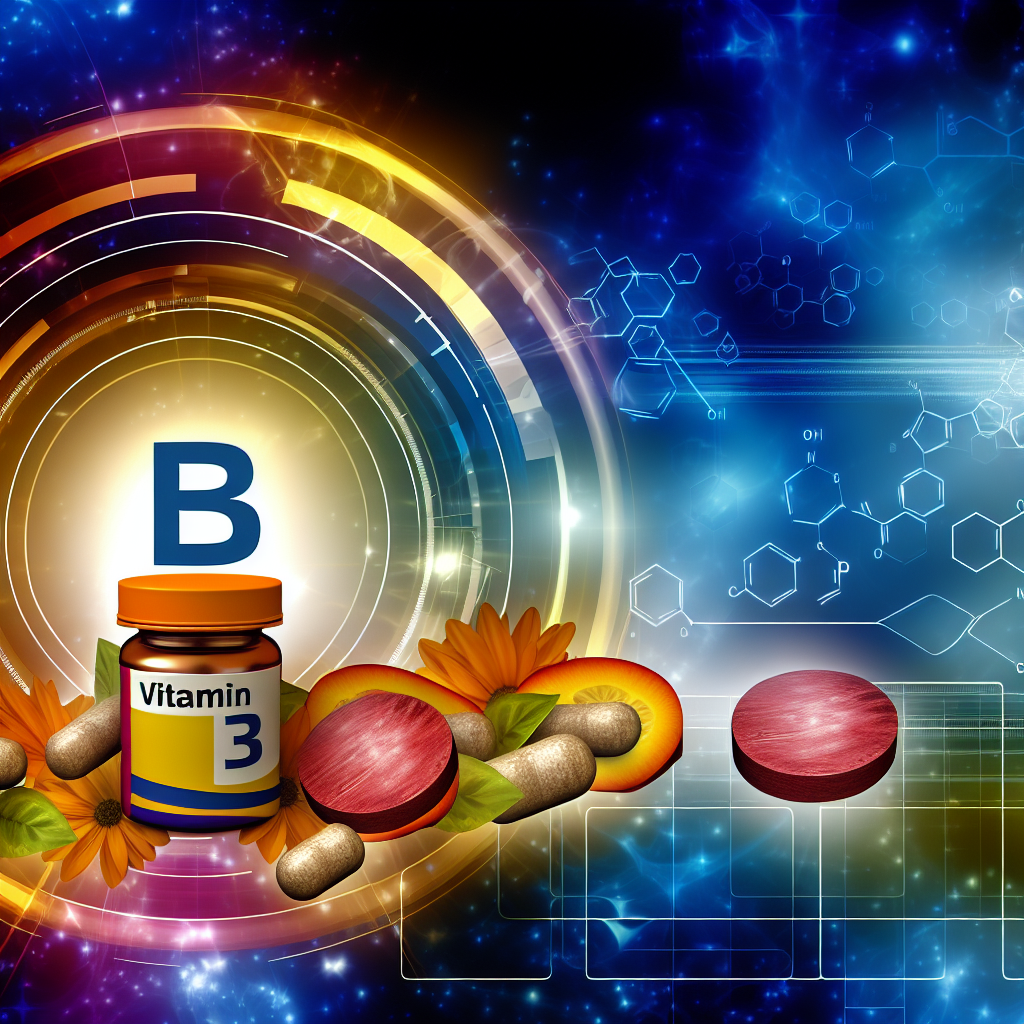In the world of essential nutrients, Vitamin B3, also known as Niacin, often flies under the radar—but it’s quietly working behind the scenes to support your overall health. From glowing skin to better energy levels and a stronger heart, Niacin plays a key role in keeping your body functioning at its best. If you’ve ever wondered why this vitamin is so vital, you’re about to discover its incredible benefits and how to incorporate it easily into your life.
What Is Vitamin B3, and Why Does Your Body Depend on It?
Vitamin B3 is a water-soluble nutrient that belongs to the family of B-complex vitamins. It exists in two forms—Niacin and Niacinamide—both of which contribute to your body’s ability to process food into usable energy. No matter what you’re doing, be it exercising, working, or even sleeping, Vitamin B3 helps power these processes by supporting metabolic function.
But the role of Niacin goes beyond energy production. It helps produce NAD (nicotinamide adenine dinucleotide), a coenzyme essential for cellular repair and maintaining optimal health. When your Niacin levels are too low, it can signal trouble in the form of fatigue, skin irritations, brain fog, or digestive issues. It's safe to say this vital nutrient is a cornerstone of your wellness.
The Incredible Benefits of Vitamin B3
1. Improves Skin Health Naturally
One of Vitamin B3’s standout benefits is its ability to transform skin health. Whether it’s calming inflammation, managing acne, or reducing hyperpigmentation, Niacinamide is the multitasking skincare ingredient your routine might be missing. It works by strengthening the skin’s barrier, locking in moisture, and fending off environmental stressors like pollution or UV damage.
Example: If you’ve struggled with winter dryness or redness, a cream infused with Niacinamide can work wonders by helping your skin repair itself gently.
2. Supports Heart Health and Cholesterol Management
If heart health is on your radar, you’ll be glad to know that Niacin is one of the best nutrients to support it. Clinical studies show that Vitamin B3 helps lower bad cholesterol (LDL) and triglycerides while increasing good cholesterol (HDL) levels. This combination reduces the risk of developing cardiovascular diseases and improves overall blood flow.
Imagine Niacin as your body’s plumber—working to clear clogged arteries so blood can circulate freely and efficiently.
3. Boosts Energy Production
Ever feel fatigued even when you’ve had enough sleep? It could be a sign your metabolism isn’t running efficiently. Vitamin B3 helps convert food into the fuel your body needs by breaking down carbohydrates, fats, and proteins into energy molecules. With proper levels of Niacin, you can tackle long workdays or busy routines with renewed vitality.
4. Promotes Cognitive Function
Your brain loves Vitamin B3 as much as your body does. It not only helps with mental clarity and focus but also may protect against age-related cognitive decline and neurodegenerative diseases like Alzheimer’s. Its ability to repair cellular damage makes Niacin essential for long-term brain health.
Example: Ever felt like you’re “in a fog”? Ensuring you have enough Vitamin B3 can get your mind back on track.
5. Enhances Digestion and Gut Health
Vitamin B3 doesn’t just keep you energized—it also supports a healthy digestive system by aiding enzyme production and nutrient absorption. If bloating or sluggish metabolism is slowing you down, incorporating Niacin-rich foods into your diet can help.
Could You Be Deficient in Vitamin B3?
Although most people get enough Vitamin B3 from their diet, deficiency can occur in certain circumstances. Signs of Niacin deficiency include:
- Persistent fatigue or low energy levels.
- Skin problems like roughness, peeling, or symptoms of pellagra (severe deficiency).
- Digestive issues, including nausea or abdominal pain.
- Cognitive symptoms such as brain fog or difficulty concentrating.
Populations at higher risk for deficiency include those with malnutrition, alcohol dependency, or medical conditions that impair nutrient absorption. Identifying these symptoms early is key to preventing further health issues.
How to Incorporate Vitamin B3 Into Your Lifestyle
Niacin-Rich Foods to Add to Your Diet
The easiest way to maintain adequate Vitamin B3 levels is through a Niacin-rich diet. Here are some nutrient-packed options:
- Animal-based foods: Chicken, turkey, fish (like salmon and tuna), beef, and eggs.
- Plant-based sources: Brown rice, peanuts, sunflower seeds, mushrooms, and avocados.
- Fortified options: Many cereals, bread, and flour products are enriched with Niacin to help prevent deficiencies.
Adding a handful of nuts to your snack routine or enjoying grilled salmon for dinner are simple ways to boost your intake.
Should You Consider Niacin Supplements?
While food sources will meet most people’s daily Vitamin B3 needs, some individuals—such as those with cholesterol concerns or diagnosed deficiencies—may benefit from Niacin supplements. However, high-dose supplements can cause unwanted side effects, such as skin flushing or digestive upset, so it’s best to consult your doctor before starting.
Pro Tip: Look for time-released formulas to minimize any side effects and maximize health benefits.
Wrapping It All Up: Why Vitamin B3 Is Key to Your Wellness
Vitamin B3 may not grab the spotlight like other nutrients, but it’s a silent supporter of energy, cognition, skin health, and more. Whether you’re looking to lower cholesterol, improve digestion, or simply feel more energized, Niacin delivers undeniable results. The beauty of this nutrient is its accessibility—you can get it from everyday foods, and supplementation is an option for people with higher needs.
So why not take action today? Start adding more Niacin-rich foods to your meals, or speak with your healthcare provider if supplements might benefit you. Taking small steps to prioritize your Vitamin B3 intake can lead to big changes, leaving you healthier and stronger from the inside out.
